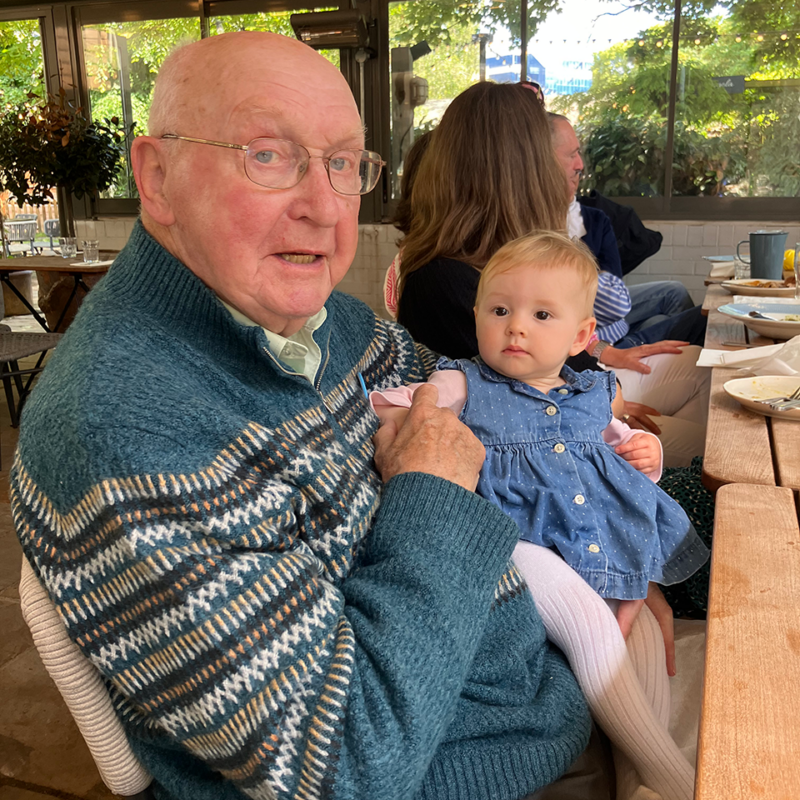
I still cherish every moment I have with Jan – Bob’s story
Bob, who has been married to Jan for 62 years, reflects on their beautiful relationship in spite of a heartbreaking journey with dementia.
Often, people with dementia stop recognising those around them. Our dementia specialist Admiral Nurses share their advice on coping with this difficult stage.
As dementia progresses, some people stop recognising people they know – even close friends and family. This can be upsetting for the person with dementia and for the people who are no longer recognised.
Not everyone with dementia will have difficulty recognising people, though – for example, it’s more common in people with Alzheimer’s disease, and rarer in those with vascular dementia.
Sometimes, a lack of recognition of friends and family is a memory issue. A person with dementia may appear to travel back in time, reliving memories from when they were younger. They might expect grown-up children to be small again, or think their parents are still alive, or believe they’re still working, or in a relationship with a previous partner or spouse.
In other cases, the part of the brain that is responsible for recognising faces can become damaged. This is referred to as ‘prosopagnosia’ or ‘face blindness’.
If a person with dementia is failing to recognise you or others for the first time, or seems distressed in your company, there may be another underlying cause, such as an infection, constipation or a reaction to medication changes. It’s a good idea to make an appointment with their GP to rule out other causes that could be treatable.
These tips may help the person with dementia to understand where they are in time and recognise the people around them.
It can be very upsetting if a loved one doesn’t recognise you, but it doesn’t mean the person has totally forgotten you. They will often feel attached to you and enjoy your company even if they can’t remember your name or how you are connected to them.
Our free Dementia Helpline can support you if you’re caring for a person who doesn’t recognise you. Call 0800 888 6678 (Monday-Friday 9am-9pm, Saturday and Sunday 9am-5pm, every day except Christmas Day), email helpline@dementiauk.org or you can pre-book a phone or online appointment at a time that suits you.
Our virtual clinics give you the chance to discuss any questions or concerns with a dementia specialist Admiral Nurse by phone or video call, at a time that suits you.

Bob, who has been married to Jan for 62 years, reflects on their beautiful relationship in spite of a heartbreaking journey with dementia.

Julie Hayden was diagnosed with dementia at just 54 years old. She's since dedicated herself to advocating for people living with dementia and elevating the voice of lived experience.

Simon, who has lived in New Zealand for two decades, discusses how he cares for his dad who has Alzheimer’s disease and lives alone in the UK.